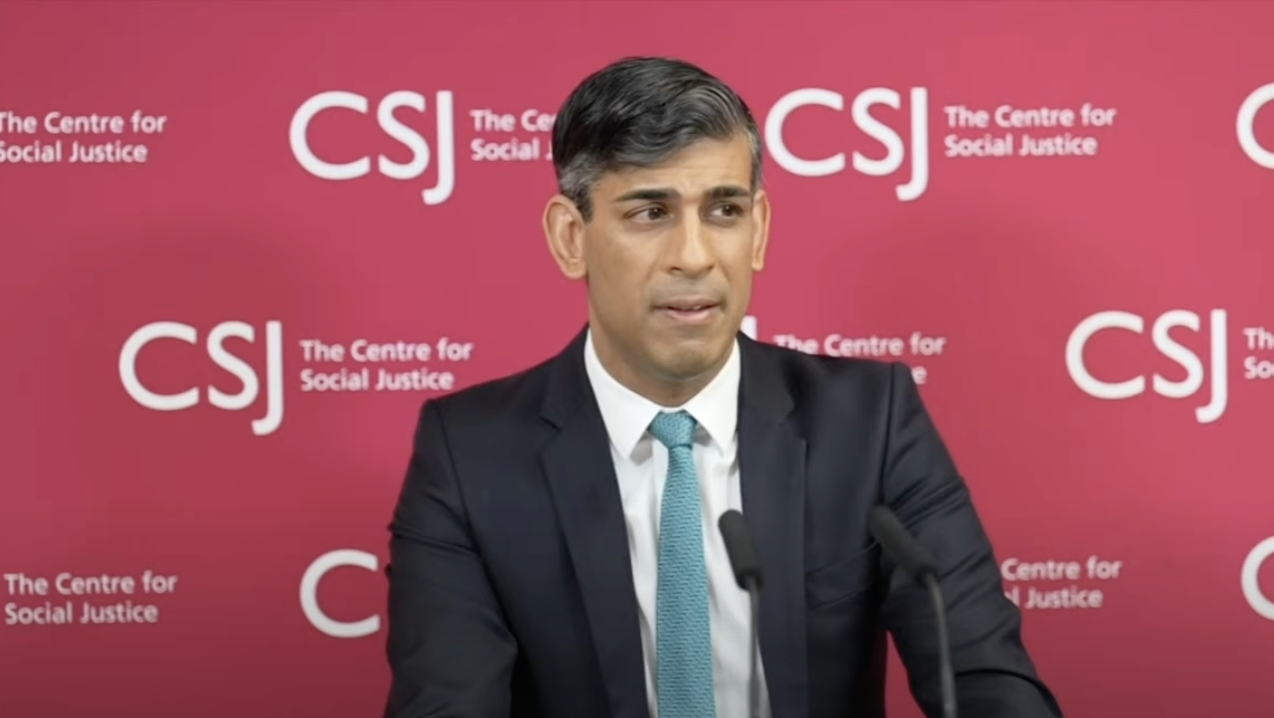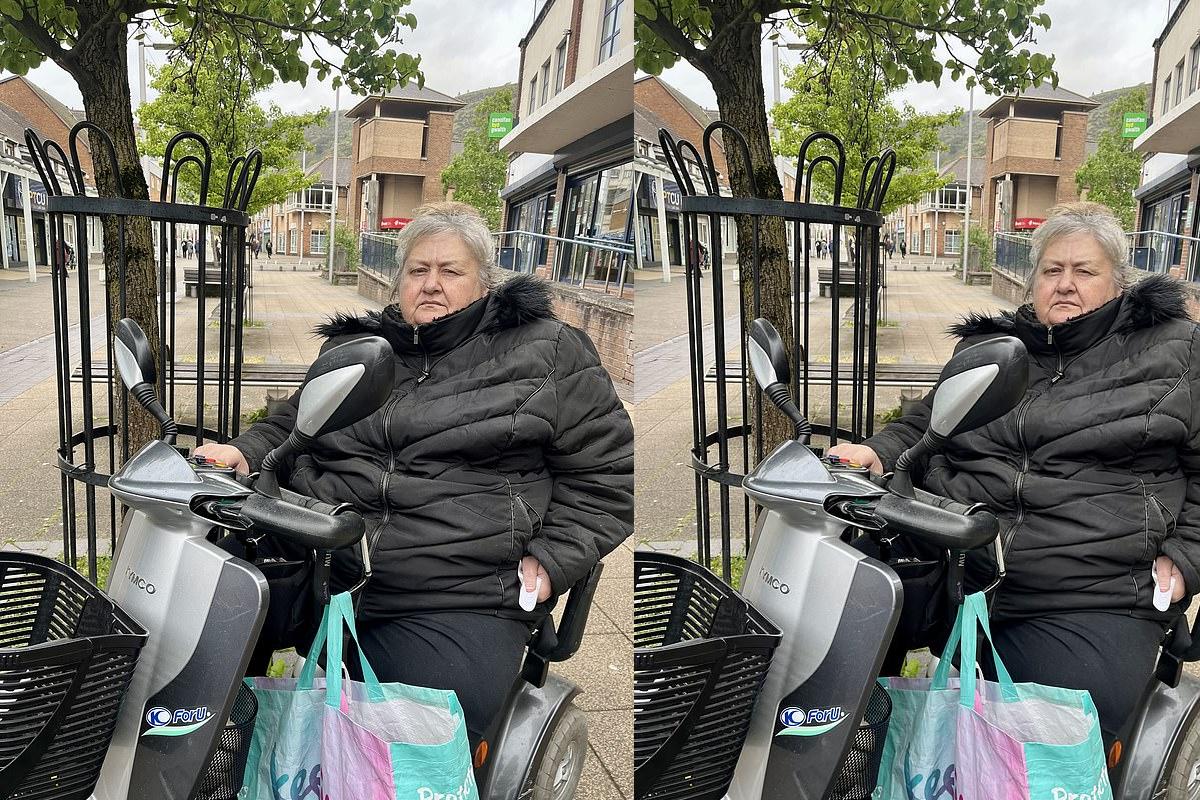In the realm of disability support, Disability Benefits Vouchers emerge as a beacon of financial assistance, empowering individuals with disabilities to navigate life’s challenges with greater ease and dignity. This guide delves into the intricacies of these vouchers, exploring their types, application processes, and the myriad benefits they offer.
From understanding eligibility criteria to maximizing voucher value, this comprehensive resource provides a roadmap for individuals seeking to harness the full potential of Disability Benefits Vouchers. Join us as we unravel the complexities of this essential support system, empowering you with the knowledge and tools to unlock a brighter future.
Types of Disability Benefits Vouchers

Disability benefits vouchers are a type of financial assistance that can help people with disabilities cover the costs of essential goods and services. There are several different types of disability benefits vouchers available, each with its own eligibility criteria and benefits.
Types of Disability Benefits Vouchers
- Supplemental Security Income (SSI): SSI is a federal program that provides monthly cash payments to people with disabilities who have limited income and resources. To be eligible for SSI, you must be a U.S. citizen or permanent resident, be at least 65 years old, blind, or disabled, and have limited income and resources.
- Social Security Disability Insurance (SSDI): SSDI is a federal program that provides monthly cash payments to people who are disabled and have worked long enough to qualify for benefits. To be eligible for SSDI, you must have a disability that prevents you from working, and you must have worked long enough to earn enough Social Security credits.
- Medicare: Medicare is a federal program that provides health insurance to people who are 65 years old or older, or who have certain disabilities. To be eligible for Medicare, you must be a U.S. citizen or permanent resident, and you must meet certain age or disability requirements.
- Medicaid: Medicaid is a federal-state program that provides health insurance to people with low incomes and resources. To be eligible for Medicaid, you must meet certain income and resource requirements, and you must live in a state that has expanded Medicaid.
Eligibility Criteria for Disability Benefits Vouchers
The eligibility criteria for disability benefits vouchers vary depending on the type of voucher. In general, you must be a U.S. citizen or permanent resident, and you must meet certain age, disability, or income requirements.
Benefits of Disability Benefits Vouchers
Disability benefits vouchers can provide a variety of benefits, including:
- Monthly cash payments
- Health insurance
- Food stamps
- Housing assistance
- Transportation assistance
Restrictions on Disability Benefits Vouchers
There are some restrictions on disability benefits vouchers. For example, you may not be eligible for SSI if you have too much income or resources. You may also not be eligible for SSDI if you have not worked long enough to earn enough Social Security credits.
Table Comparing Disability Benefits Vouchers
The following table compares the benefits, eligibility requirements, and restrictions of each type of disability benefits voucher:
| Voucher Type | Benefits | Eligibility Requirements | Restrictions |
|—|—|—|—|
| SSI | Monthly cash payments | U.S. citizen or permanent resident, age 65 or older, blind, or disabled, limited income and resources | Income and resource limits |
| SSDI | Monthly cash payments | Disability that prevents you from working, worked long enough to earn enough Social Security credits | Work history requirement |
| Medicare | Health insurance | Age 65 or older, or certain disabilities | Age or disability requirements |
| Medicaid | Health insurance | Low income and resources, live in a state that has expanded Medicaid | Income and resource requirements |
Benefits of Disability Benefits Vouchers

Disability benefits vouchers provide numerous advantages to individuals with disabilities. These vouchers not only offer financial assistance but also improve access to essential services and enhance overall quality of life.
Financial Benefits
Disability benefits vouchers provide financial relief to individuals with disabilities, enabling them to cover expenses related to their condition. These vouchers can be used to purchase assistive devices, medical equipment, and other necessary items that can significantly improve their daily lives. By reducing the financial burden, vouchers empower individuals to live more independently and participate fully in society.
Improved Access to Essential Services
Disability benefits vouchers also facilitate access to essential services that may otherwise be financially inaccessible. These services include healthcare, transportation, and rehabilitation programs. Vouchers can help individuals overcome barriers to accessing these services, ensuring they receive the support they need to live fulfilling and productive lives.
Enhanced Quality of Life
The financial assistance and improved access to services provided by disability benefits vouchers have a profound impact on the quality of life for individuals with disabilities. By alleviating financial stress, reducing barriers to essential services, and promoting independence, these vouchers empower individuals to live with dignity and reach their full potential.
Application Process for Disability Benefits Vouchers

The application process for disability benefits vouchers involves several steps to ensure that individuals with disabilities receive the support they need. To begin the process, individuals should gather the necessary documentation and understand the eligibility criteria. The approval process typically takes a certain amount of time, and it’s essential to be patient and follow up regularly.
It’s important to note that the specific application process and requirements may vary depending on the country or region. Therefore, it’s recommended to check with the relevant authorities or organizations for the most up-to-date information.
Documentation Required
When applying for disability benefits vouchers, individuals are typically required to provide documentation to support their claim. This documentation may include:
- Medical records or a doctor’s certification that verifies the disability
- Proof of income and financial need
- Proof of residency
- Other relevant documents as requested by the authorities
Approval Process and Timelines
Once the application is submitted, it will be reviewed by the relevant authorities. The approval process can take varying amounts of time depending on the complexity of the case and the workload of the authorities. In some cases, additional information or documentation may be requested.
It’s important to follow up regularly with the authorities to check on the status of the application. If there are any delays or issues, individuals should contact the authorities to inquire and resolve them promptly.
Sample Application Letter for Disability Benefits Vouchers
A sample application letter for disability benefits vouchers can include the following information:
- Personal information (name, address, contact details)
- A brief description of the disability and its impact on the individual’s life
- Details of any medical treatment or support received
- A statement of financial need and how the vouchers would assist
- A request for the authorities to review the application and provide support
Eligibility Criteria for Disability Benefits Vouchers
The eligibility criteria for disability benefits vouchers may vary depending on the country or region. However, some common criteria include:
| Criteria | Description |
|---|---|
| Disability | Individuals must have a recognized disability that significantly impacts their daily life and ability to work or participate in society. |
| Income and Financial Need | Individuals must meet certain income and financial need thresholds to qualify for vouchers. |
| Residency | Individuals must typically be residents of the country or region where they are applying for vouchers. |
Frequently Asked Questions about Disability Benefits Vouchers
Some frequently asked questions about disability benefits vouchers include:
- Who is eligible for disability benefits vouchers?
- What documentation is required to apply for vouchers?
- How long does the approval process take?
- How can I track the status of my application?
- What can I use the vouchers for?
Usage of Disability Benefits Vouchers
Disability benefits vouchers can be used to cover a wide range of expenses related to disability, including medical equipment, home modifications, and transportation costs. The specific types of expenses that are eligible for coverage vary depending on the program and the individual’s needs.
Here are some examples of eligible expenses:
- Medical equipment, such as wheelchairs, walkers, and hearing aids
- Home modifications, such as ramps, grab bars, and accessible showers
- Transportation costs, such as paratransit services and wheelchair-accessible vehicles
- Assistive technology, such as computer software and communication devices
- Personal care services, such as bathing, dressing, and meal preparation
There are some restrictions and limitations on the usage of disability benefits vouchers. For example, some programs may only cover certain types of expenses, or they may have a maximum amount that can be spent. It is important to check with the program administrator to find out the specific rules and regulations.
Managing Disability Benefits Vouchers

Effectively managing disability benefits vouchers requires careful planning and organization. By implementing these tips, individuals can ensure the efficient use of their vouchers and maximize their benefits.
Keeping Track of Expenses
Maintaining a detailed record of expenses is crucial. This allows individuals to monitor their spending and ensure that vouchers are utilized for eligible expenses. It is advisable to keep receipts, invoices, and other relevant documentation to support their claims.
Staying Organized
Organization is essential for managing disability benefits vouchers. Individuals should establish a system for storing and tracking their vouchers, receipts, and other documents. This could involve using a designated folder, binder, or digital filing system. Regular review and updating of records will help prevent confusion and ensure timely submission of claims.
Explain how the availability of disability benefits vouchers varies based on the type and severity of disability.
The availability of disability benefits vouchers varies depending on the type and severity of disability. Generally, individuals with more severe disabilities are eligible for a wider range of benefits and services.
For example, individuals with physical disabilities may be eligible for vouchers that cover the cost of assistive devices, such as wheelchairs or hearing aids. Individuals with cognitive disabilities may be eligible for vouchers that cover the cost of support services, such as respite care or job training.
Eligibility Criteria
The eligibility criteria for disability benefits vouchers vary from program to program. However, most programs require applicants to meet certain basic criteria, such as:
- A diagnosis of a disability from a qualified healthcare professional
- A certain level of functional impairment
- Financial need
Advocacy for Disability Benefits Vouchers
Advocating for disability benefits vouchers is crucial to ensure that individuals with disabilities have access to essential resources and support. It involves raising awareness, educating policymakers, and advocating for policies that prioritize the needs of people with disabilities.
Advocacy efforts can take various forms, such as organizing awareness campaigns, conducting research and presenting data to policymakers, engaging with media to highlight the challenges faced by individuals with disabilities, and lobbying for legislation that supports disability benefits vouchers.
Impact of Advocacy
Effective advocacy can significantly influence policy and legislation. By raising awareness and providing evidence-based information, advocates can persuade policymakers to understand the importance of disability benefits vouchers and their impact on the lives of individuals with disabilities. Advocacy efforts have contributed to the establishment of programs and policies that provide financial assistance, healthcare, and other essential services to people with disabilities.
– Legal Considerations for Disability Benefits Vouchers
Disability benefits vouchers provide financial assistance to individuals with disabilities, enabling them to access essential goods and services. The legal framework surrounding these vouchers ensures their proper issuance, use, and redemption.
– Definition and Legal Authority
Disability benefits vouchers are government-issued financial instruments that provide monetary assistance to individuals with disabilities. The legal authority for issuing these vouchers varies by jurisdiction, but typically stems from federal or state laws and regulations.
– Scope and Limitations
The legal framework defines the scope and limitations of disability benefits vouchers. It establishes eligibility criteria, voucher amounts, and permissible uses. These limitations aim to ensure that vouchers are used for their intended purpose and that resources are distributed fairly.
– Relevant Laws and Regulations
Key laws and regulations governing disability benefits vouchers include:
- Americans with Disabilities Act (ADA)
- Supplemental Security Income (SSI) program
- Social Security Disability Insurance (SSDI) program
- State-specific laws and regulations
These laws and regulations impact voucher issuance, use, and redemption by establishing eligibility requirements, defining voucher amounts, and outlining acceptable uses.
– Legal Protections for Voucher Recipients
Voucher recipients have certain legal rights and protections, including:
- Right to fair and equitable treatment
- Right to due process in voucher issuance and redemption
- Right to challenge decisions related to vouchers
Individuals can access these rights and protections through legal channels, such as filing complaints or seeking legal assistance.
– Successful Legal Challenges
Several successful legal challenges have been brought related to disability benefits vouchers. These challenges have addressed issues such as:
- Eligibility criteria
- Voucher amounts
- Restrictions on voucher use
These challenges have resulted in changes to the legal framework, ensuring greater fairness and equity for voucher recipients.
Fraud and Abuse of Disability Benefits Vouchers
Disability benefits vouchers are a valuable resource for individuals with disabilities. However, the potential for fraud and abuse exists, which can undermine the integrity of the program and deprive those who genuinely need assistance.
Fraudulent activities can include forging or altering vouchers, using them for unauthorized purposes, or selling them for personal gain. These actions not only violate the law but also divert resources away from those who are truly entitled to benefits.
Consequences of Fraudulent Activity, Disability benefits vouchers
The consequences of fraudulent activity can be severe. Individuals who engage in such actions may face criminal charges, fines, and imprisonment. They may also be disqualified from receiving future benefits or have their vouchers revoked.
Preventing and Detecting Fraud
Preventing and detecting fraud is essential to maintaining the integrity of the disability benefits voucher program. Several measures can be taken to minimize the risk of fraudulent activities, including:
- Implementing strict eligibility criteria and verification procedures
- Educating beneficiaries about the proper use of vouchers
- Establishing a system for reporting suspected fraud
- Working with law enforcement agencies to investigate and prosecute fraudulent activities
Emerging Trends in Disability Benefits Vouchers

Disability benefits vouchers are increasingly being used to provide individuals with disabilities with access to a wider range of services, including transportation, housing, and job training. This trend is being driven by a number of factors, including the growing recognition of the importance of these services in helping individuals with disabilities live independently and participate fully in society, and the increasing availability of technology to facilitate the use of vouchers.
One of the most significant emerging trends in the use of disability benefits vouchers is the expansion of eligibility to individuals with disabilities who are not currently receiving benefits. This trend is being driven by the growing recognition that many individuals with disabilities who are not receiving benefits could benefit from the use of vouchers to access services that can help them live independently and participate fully in society.
Use of Vouchers for Services
Vouchers are increasingly being used to provide individuals with disabilities with access to a wider range of services, including transportation, housing, and job training. This trend is being driven by a number of factors, including the growing recognition of the importance of these services in helping individuals with disabilities live independently and participate fully in society, and the increasing availability of technology to facilitate the use of vouchers.
Design a table comparing different types of disability benefits vouchers.
/trim-feed/media/media_files/0c3ed374509d5a6fd9c80c9b2fbcbb0c7e6a9e49795e97365e1421f1abe4162e.jpg)
Disability benefits vouchers are a valuable resource for people with disabilities, providing financial assistance for a range of expenses. Different types of vouchers are available, each with its own eligibility criteria, benefits, and restrictions. The following table provides a comparison of the most common types of disability benefits vouchers:
| Voucher Type | Eligibility Criteria | Benefits | Restrictions |
|---|---|---|---|
| Personal Care Assistance (PCA) Voucher | Must be unable to perform personal care tasks without assistance | Provides funding for personal care assistance, such as bathing, dressing, and feeding | Must be used for personal care services only |
| Home and Vehicle Modification (HVM) Voucher | Must have a disability that requires home or vehicle modifications | Provides funding for modifications to make the home or vehicle accessible | Must be used for home or vehicle modifications only |
| Transportation Voucher | Must have a disability that prevents using public transportation | Provides funding for transportation services, such as taxis, ride-sharing, or accessible vehicles | Must be used for transportation services only |
| Assistive Technology Voucher | Must have a disability that requires assistive technology | Provides funding for assistive technology, such as wheelchairs, hearing aids, or computer software | Must be used for assistive technology only |
Create a flowchart illustrating the application process for disability benefits vouchers.
To receive disability benefits vouchers, individuals must follow a specific application process. The process typically involves gathering necessary documentation, submitting an application form, and undergoing an evaluation to determine eligibility.
Here is a simplified flowchart that Artikels the general application process for disability benefits vouchers:
- Gather necessary documentation: This may include medical records, proof of income, and other supporting documents.
- Submit an application form: The application form can be obtained from the relevant government agency or organization.
- Undergo an evaluation: This evaluation is typically conducted by a medical professional or other designated authority to determine the applicant’s eligibility for benefits.
- Receive a decision: The applicant will receive a decision regarding their eligibility for disability benefits vouchers.
- If eligible, receive vouchers: If the applicant is deemed eligible, they will receive disability benefits vouchers.
Tips for Using Disability Benefits Vouchers Wisely
Using disability benefits vouchers wisely is crucial to maximize their benefits and avoid potential pitfalls. Here are some tips to help you make the most of your vouchers:
| Tip | Description | Example |
|---|---|---|
| Prioritize Essential Needs | Allocate vouchers to cover essential expenses, such as healthcare, transportation, and housing, to ensure your basic needs are met. | Using vouchers to purchase assistive devices that improve mobility or communication. |
| Research and Compare | Explore different vendors and compare prices before making purchases to get the best value for your vouchers. | Comparing costs of mobility aids from various medical supply stores to find the most affordable option. |
| Consider Long-Term Benefits | Invest in items that provide long-term benefits, such as durable medical equipment or home modifications, rather than short-term solutions. | Using vouchers to purchase a wheelchair ramp for increased accessibility, which offers ongoing convenience and safety. |
| Avoid Unnecessary Expenses | Resist the temptation to use vouchers for non-essential or frivolous items that do not contribute to your well-being. | Avoiding using vouchers to purchase luxury items or entertainment that do not enhance your quality of life. |
| Seek Professional Guidance | Consult with a financial advisor or social worker for personalized advice on managing your vouchers and making informed decisions. | Getting guidance on how to prioritize expenses and maximize the value of vouchers based on individual circumstances. |
Discuss the role of technology in improving access to disability benefits vouchers.
Technology plays a vital role in enhancing access to disability benefits vouchers by streamlining the application process, facilitating voucher usage, reducing fraud and abuse, and improving the efficiency of voucher distribution.
Streamlining the application process
[detailed content here]
Facilitating voucher usage
[detailed content here]
Reducing fraud and abuse
[detailed content here]
Enhancing the efficiency of voucher distribution
[detailed content here]
Automating the review and approval process
[detailed content here]
Recommendations for further research and development
[detailed content here]
Closing Notes
As we conclude our exploration of Disability Benefits Vouchers, it becomes evident that these vouchers are not merely financial instruments but rather a lifeline for individuals with disabilities. By providing access to essential services and improving quality of life, they play a pivotal role in fostering a more inclusive and equitable society. Embracing the transformative power of Disability Benefits Vouchers, we can collectively create a world where every individual has the opportunity to thrive, regardless of their abilities.
FAQ Guide
What are the different types of Disability Benefits Vouchers available?
Disability Benefits Vouchers encompass a range of types, each tailored to specific needs and circumstances. These include vouchers for medical expenses, transportation costs, assistive technology, and housing assistance.
How do I apply for Disability Benefits Vouchers?
The application process for Disability Benefits Vouchers varies depending on the type of voucher and the issuing authority. Generally, applicants must provide documentation of their disability and meet specific eligibility criteria.
What are the benefits of using Disability Benefits Vouchers?
Disability Benefits Vouchers offer a multitude of benefits, including financial assistance for essential expenses, improved access to healthcare and other services, and increased independence and quality of life.
